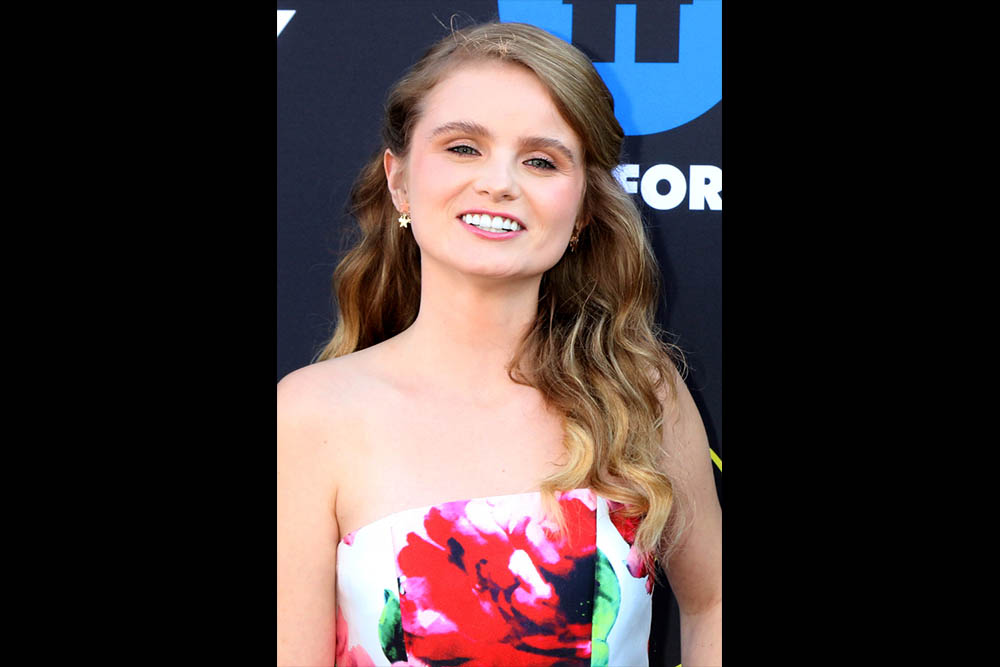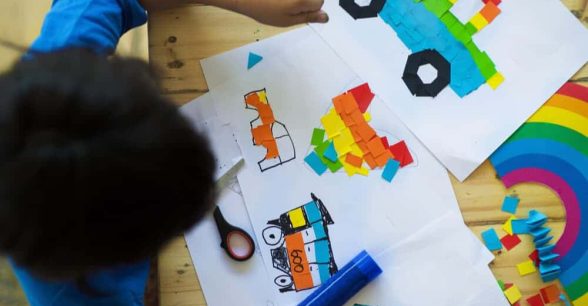Kayla Cromer is an Autistic Actress. Autistic Girls and Women Have Been Waiting for This.
For the longest time, I’ve been disappointed that I have never seen myself on television.
I mean this figuratively, of course, but based on the way autism is portrayed in mainstream media, you may be convinced I only understand and use literal language. I have seen my face plastered across local and national news several times before. But never, in entertainment, have I seen an autistic girl or woman portrayed on the small screen in a meaningful way. I have seen young boys, from Max Braverman in NBC’s Parenthood, to high school senior Sam Gardner in Netflix’s Atypical, all the way to successful men like Shaun Murphy on ABC’s The Good Doctor. And I have seen the endless speculation over whether or not Sheldon Cooper from CBS’s The Big Bang Theory is on the autism spectrum (he is not). But I have yet to see a woman on the autism spectrum grace my television at prime time.
I, and many other autistic people, have criticized these fictional television portrayals for one reason or another. I found the first season of Atypical to be a laundry list of autism stereotypes; if anything, it showed how much work needed to be done regarding portrayals of autism and illustrated the need to include autistic people in writers’ rooms and casting efforts. I have never once felt that any of the autistic boys and men on television accurately represented me or autism as I experience it. I feel similarly about film depictions such as The Accountant and Rain Man. I could not personally relate to any of these characters or the actors who played them. The actors were all neurotypical. Not one of them was on the autism spectrum.
Everything I have previously believed and witnessed regarding autism portrayals in television and movies may be about to change.
Earlier this week, Kayla Cromer announced she is on the autism spectrum at the Freeform Summit. Cromer is the young actress who will be starring in the upcoming Freeform dramedy Everything’s Gonna Be Okay. Her character on the show, 17-year-old Matilda, is also autistic. Matilda is one of the main characters in this cast, and hopefully is not a quick plot device to help the main character, her older half-brother Nicholas, grow. Based on what little we know about Matilda as a character, she is a wide-eyed musician. Already, based on this interest and because we have an autistic teenage girl on screen, Matilda as a character is smashing autism stereotypes because her special interests do not revolve around animals (Max Braverman was fascinated by bugs; Sam Gardner was fascinated by penguins).
Outside of Matilda’s character and her potential arc, this portrayal already is a bold and positive step forward because it features an autistic female lead played by an autistic actress. At the Freeform Summit, Kayla said, “so many characters today are portrayed by people who do not have a difference and honestly people with a difference are fully capable of playing our own type.” She’s absolutely correct when it comes to autism representation. One of the only recent instances in which an autistic actor played an autistic character came in 2017: Mickey Rowe, an autistic actor, played main character Christopher in the Broadway production of The Curious Incident of the Dog in the Night-Time. Rowe’s role was a nod not only the lack of characters with disabilities, but also to the underrepresentation of actors and actresses who actually have disabilities. But rarely, if at all, have we seen autistic girls and women playing ourselves on television.
Autistic girls and women like Kayla and I have always existed, though we are identified less often than the boys and men on the autism spectrum (although it’s said that autism does not discriminate by gender and there is gender inequality within autism diagnoses). The widely cited diagnostic ratios of autism probably explain why we are so used to male autistic characters dominating our screens. When I think of autistic actresses, I think of Daryl Hanna – but I have never seen her play an autistic woman before, and she had kept her autism a secret throughout most of her career. In contrast, Cromer is openly leading the way.
I have never seen myself on television. I have never been able to relate to Rain Man, Sam Gardner, or any of the other autistic television and movie characters we have come to know over the years. I am hoping that when I see Matilda for the first time in Everything’s Gonna be Okay, I will be able to relate to her. At the very least, I will be able to relate to the actress portraying her, and that is a breath of fresh air.
About Rooted In Rights
Rooted in Rights exists to amplify the perspectives of the disability community. Blog posts and storyteller videos that we publish and content we re-share on social media do not necessarily reflect the opinions or values of Rooted in Rights nor indicate an endorsement of a program or service by Rooted in Rights. We respect and aim to reflect the diversity of opinions and experiences of the disability community. Rooted in Rights seeks to highlight discussions, not direct them. Learn more about Rooted In Rights



